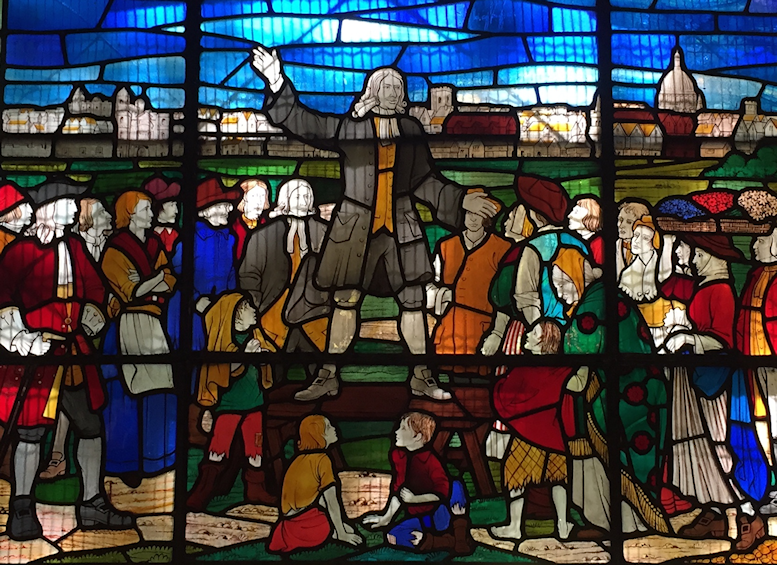
More classic art masterpieces used as illustrations

"The Wesleyan Perspective" is part of the introductory material in the Wesley Study Bible, published in 1990 by Word.
John Wesley is not a saint in the way our Roman Catholic friends bestow that title on someone. The reason we talk about John Wesley is that the theological tradition that he helped launch and guide in the 1700s was the core of a revival movement that gave birth to the Church of the Nazarene in the late 1800s and early 1900s.
-- Howard Culbertson, hculbert@snu.edu
John Wesley (1703-1791) was an English cleric, theologian, and evangelist. He and his brother Charles Wesley were instrumental in founding what became the Methodist Church. John Wesley was born in Epworth, Lincolnshire, England. He was an ordained minister in the Church of England (also known as the Anglican Church).
Wesley is best known for his role in the Methodist revival. That began as a revitalization movement within the Church of England but eventually became a separate denomination. He traveled extensively throughout England, preaching to large crowds in open fields, marketplaces, and wherever people could gather to hear him. He preached about personal faith, holiness, and social justice. To promote spiritual growth and accountability among his followers, he organized societies and class meetings..
Wesley left a literary legacy that is vast and enduring. His sermons, hymns, and theological writings continue to influence Christianity. The Methodist movement he helped start grew into one of the largest Protestant denominations in the world. Wesley's theological point of view and teachings today affect the beliefs and practices of millions of Christians in a variety of denominations, including the Church of the Nazarene.